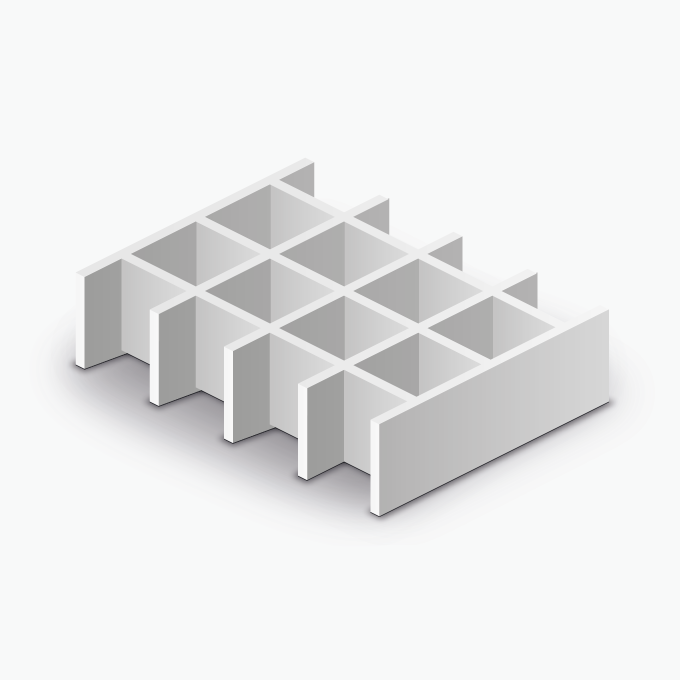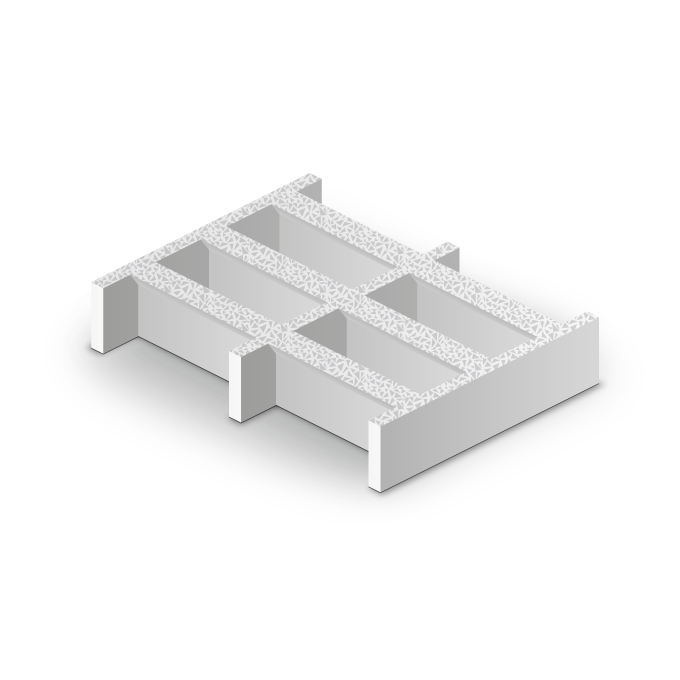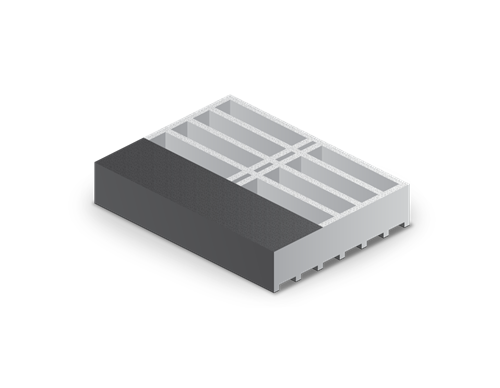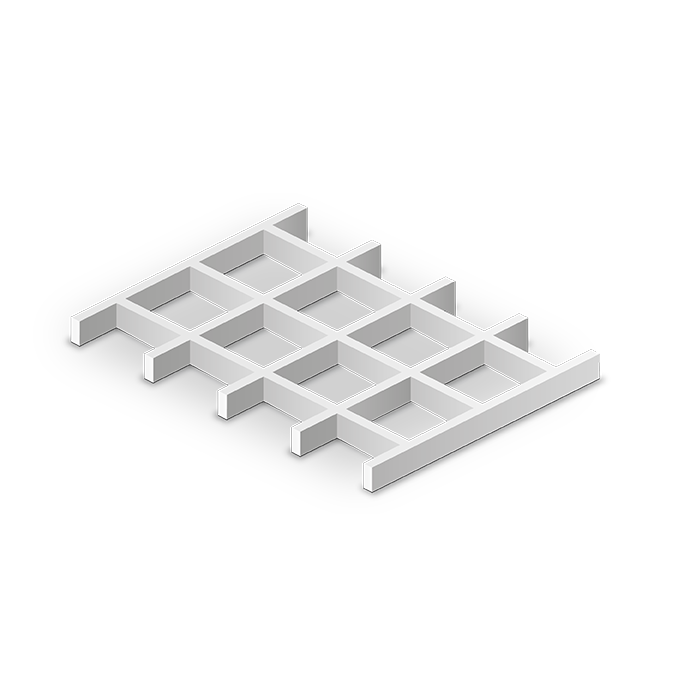
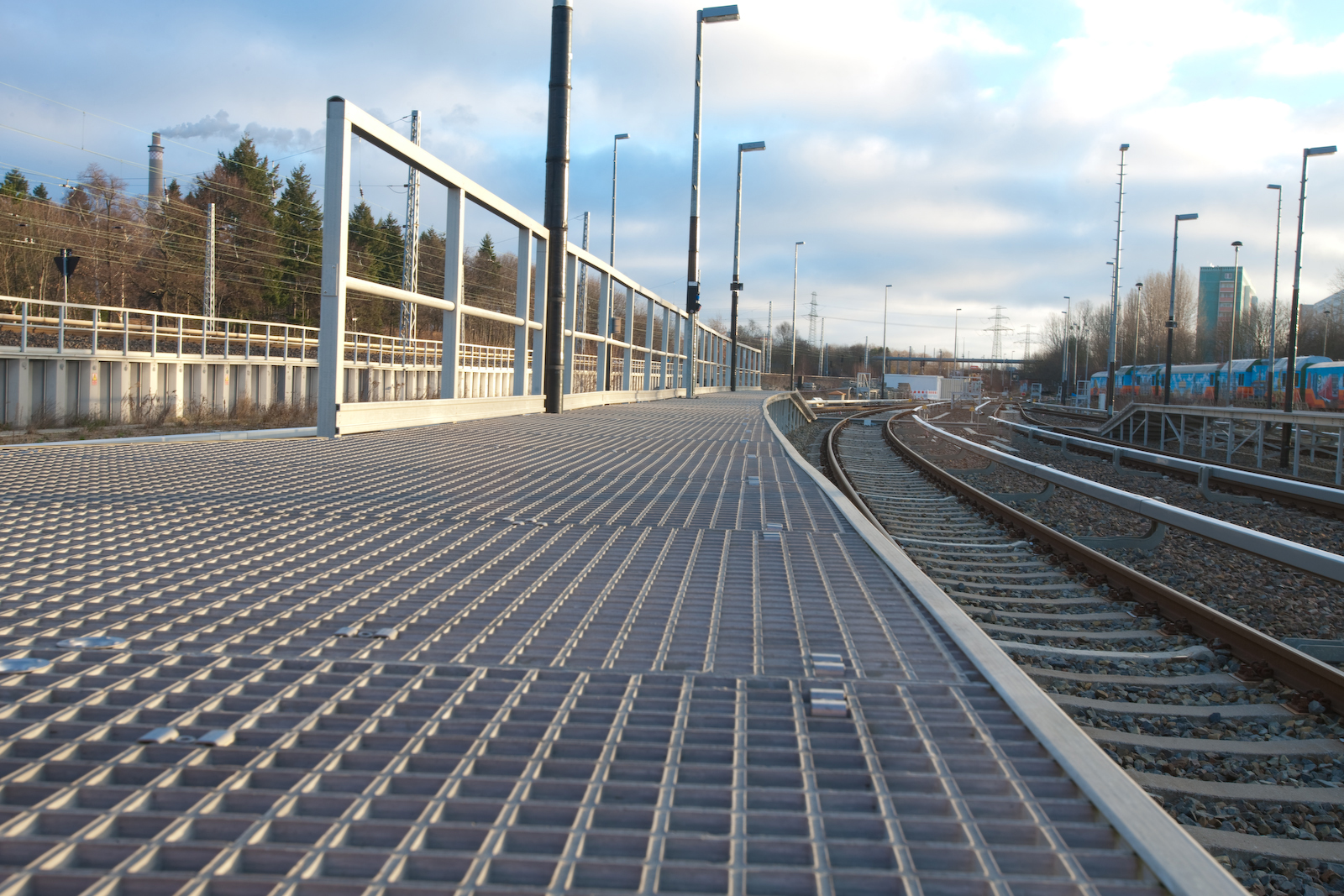
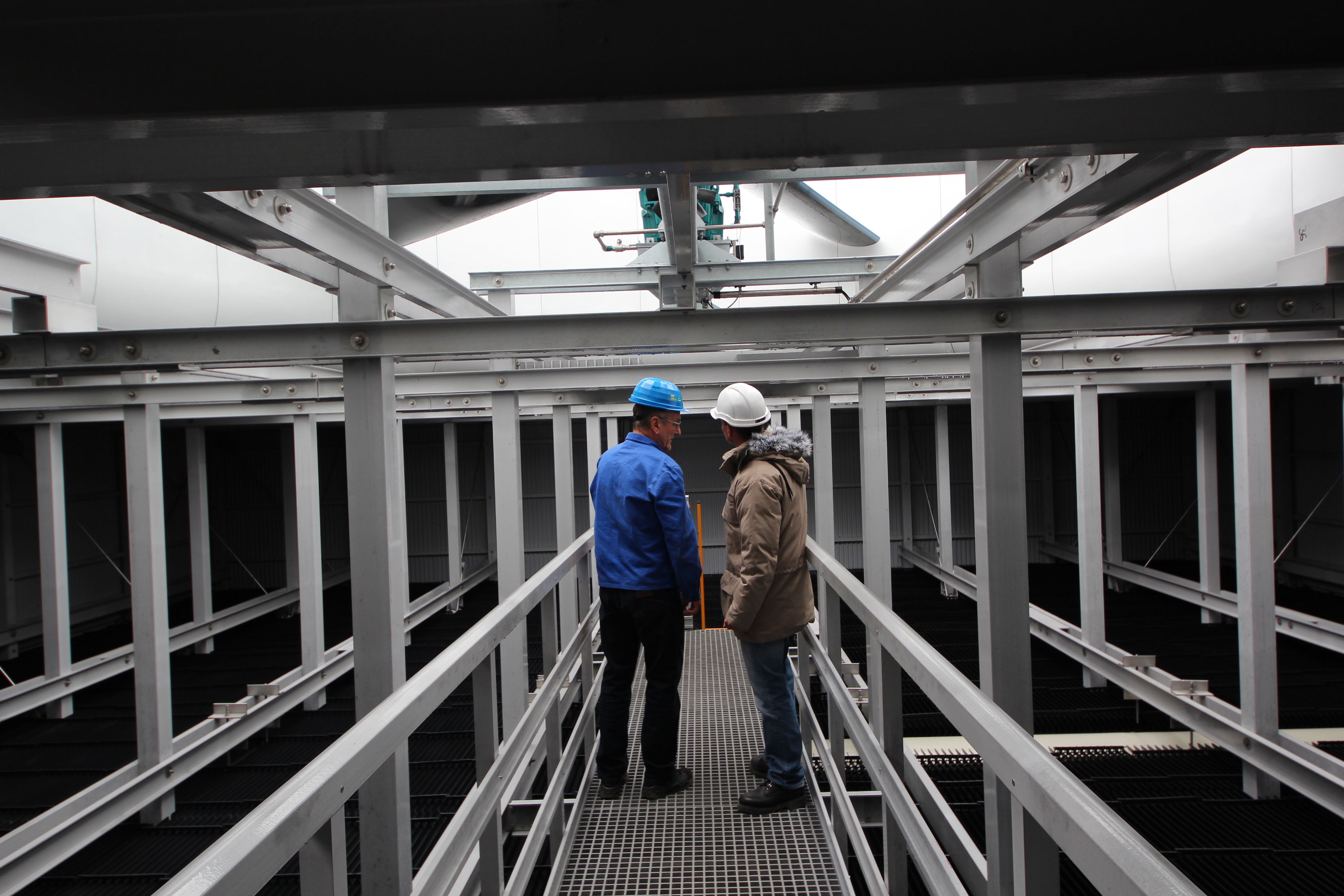
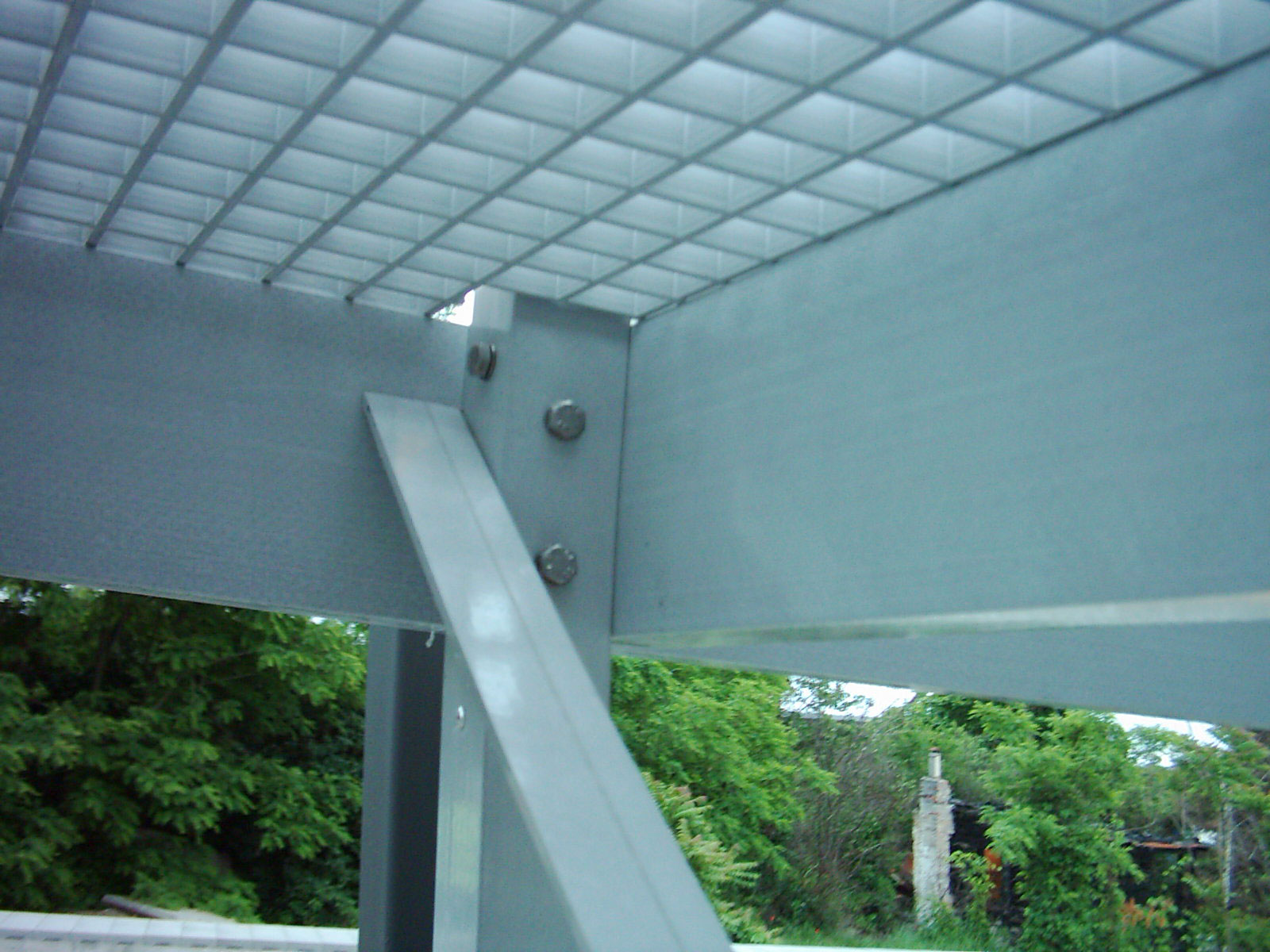
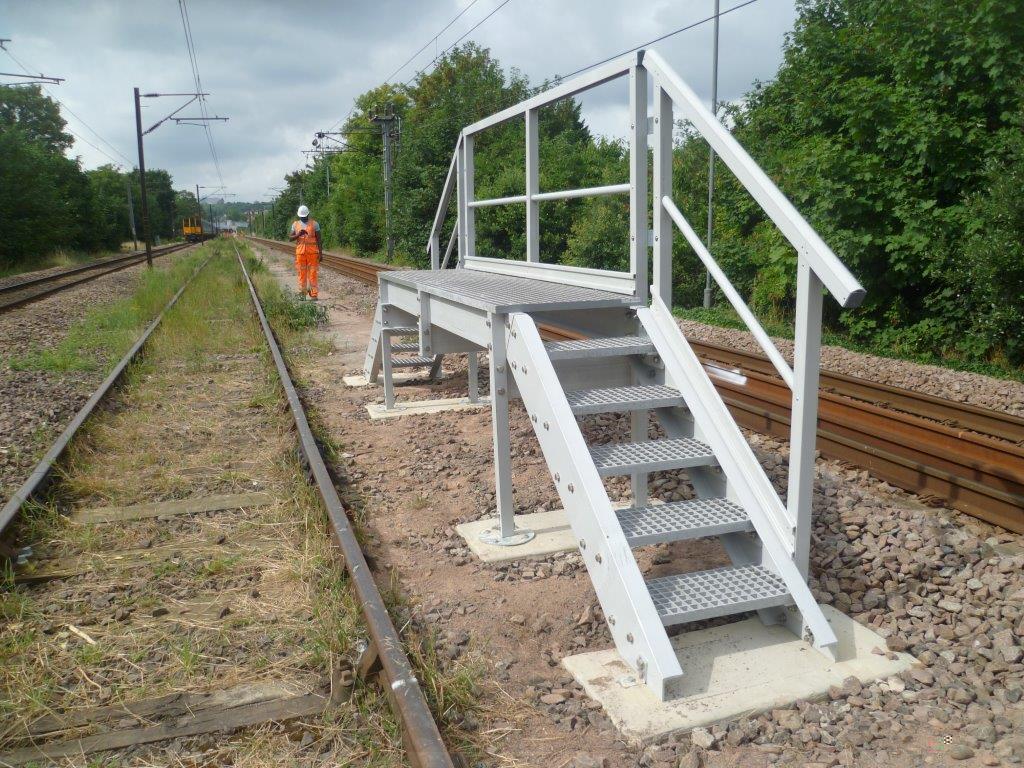
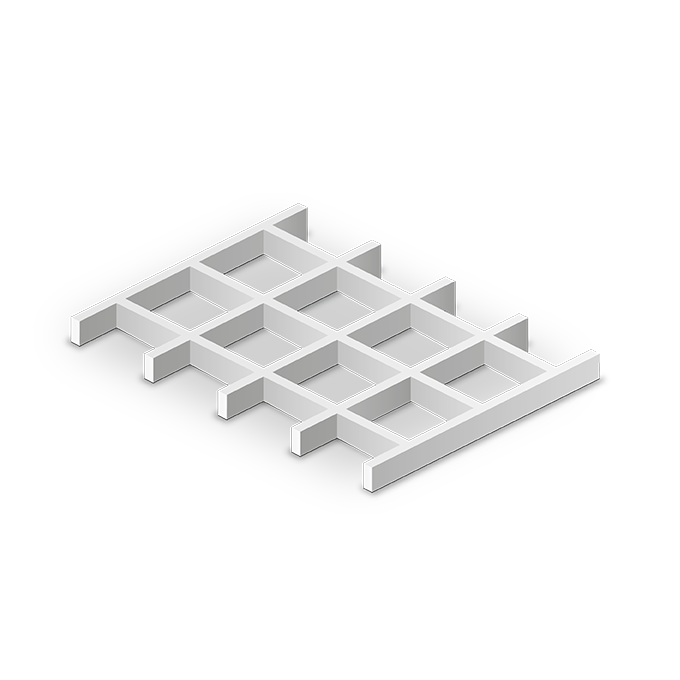

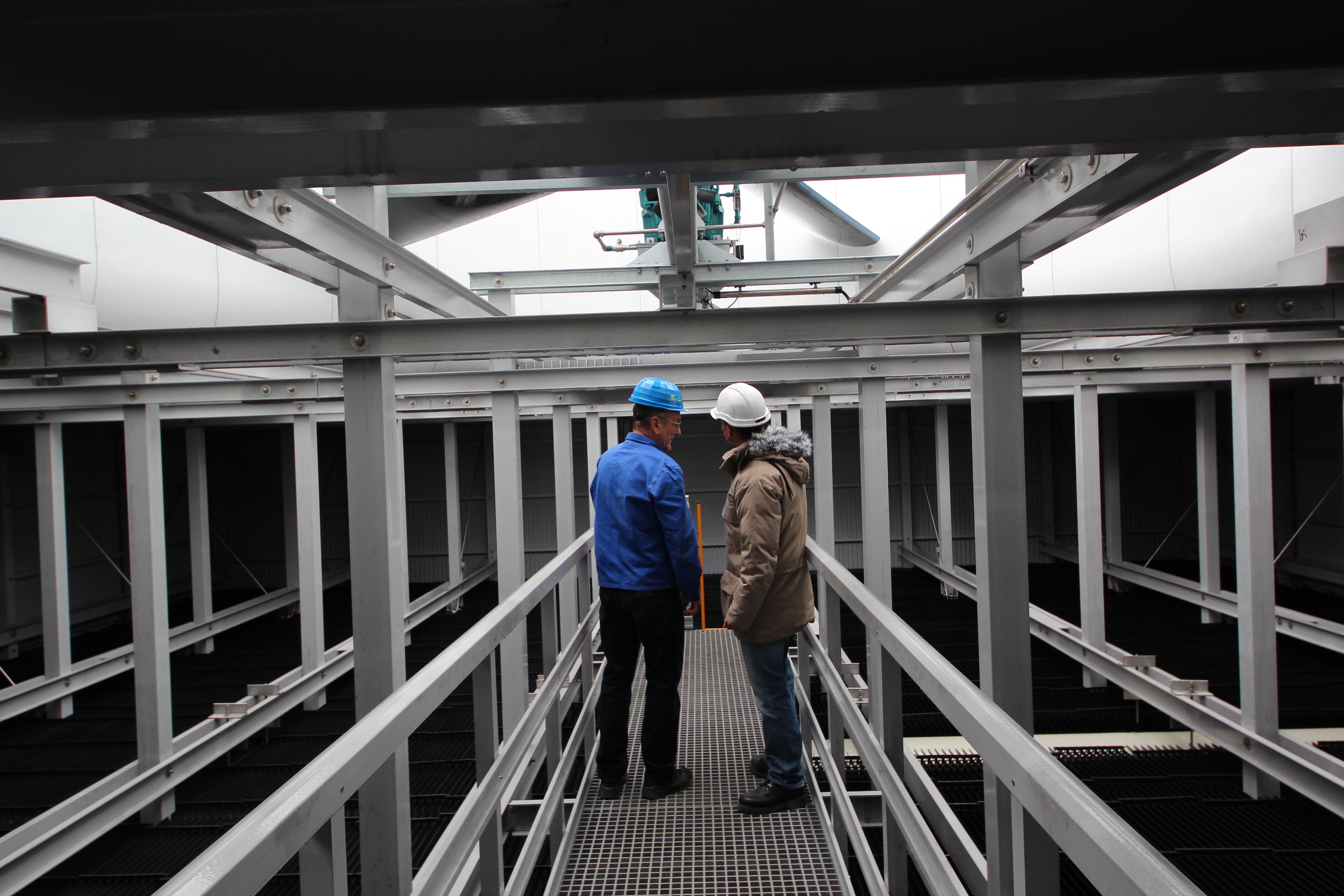
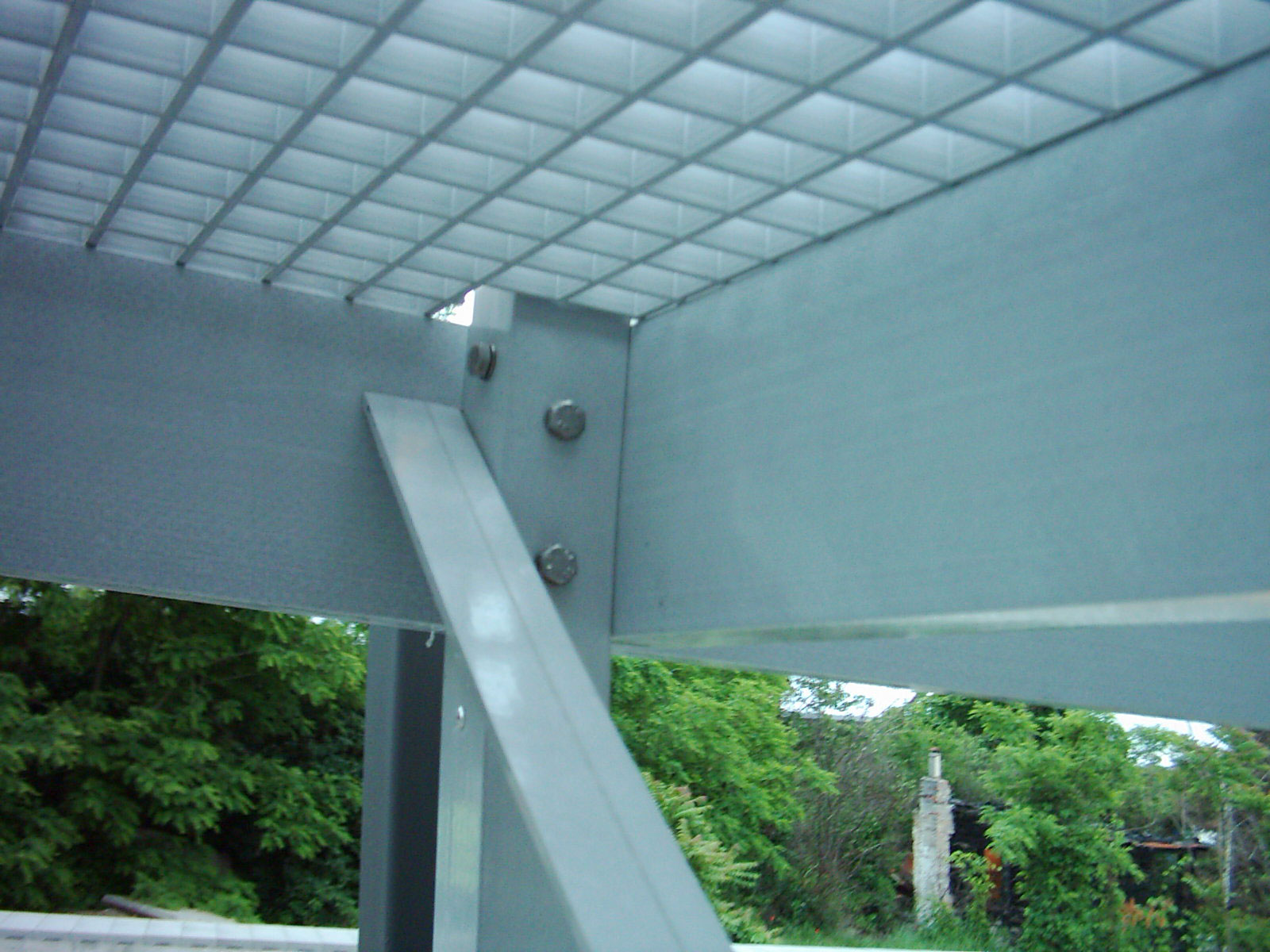

Moulded gratings 12.5 mm
Our fibreglass moulded gratings are corrosion resistant and a durable alternative to steel and plastic gratings. Other advantages include electrical insulation, high strength and low weight. Fibreglass gratings are suitable for use in aggressive environments such as offshore, in chemical industrial settings and cooling towers. All gratings have high slip-resistance factor R13 according to BGR 181.
Standard: DIN 24531
Description
Description
Our fibreglass moulded gratings are corrosion resistant and a durable alternative to steel and plastic gratings. Other advantages include electrical insulation, high strength and low weight. Fibreglass gratings are suitable for use in aggressive environments such as offshore, in chemical industrial settings and cooling towers. All gratings have high slip-resistance factor R13 according to BGR 181. Standard: DIN 24531
Choice of grating
Ortho-polyester: Moderate corrosion resistance without fire retardants. Suitable for contact with saltwater and in light industrial applications. Iso-polyester: Superior corrosion resistance with enhanced fire retardants. Suitable for environments with aggressive chemicals and high temperatures. The gratings have a DNV-approval for use on ships as well as an EBA-approval at the German railway authorities. 12,5 mm: Used as slip resistance for existing flooring and fencing applications. 25-50 mm: Used for flooring and fencing applications.
Specifications
Specifications
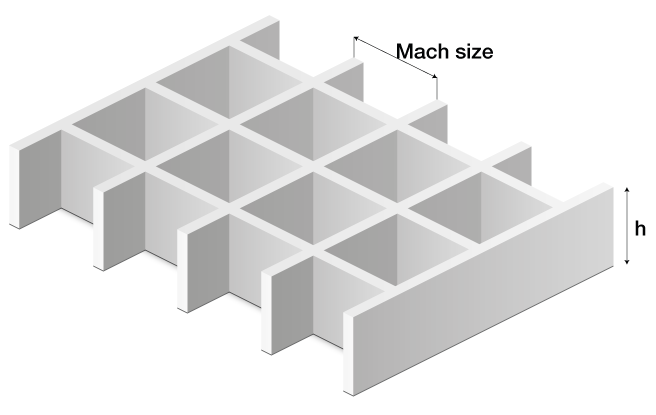
| Height | 12.5 mm |
| Colour | RAL 7004 |
Video
Video
Downloads
Downloads





